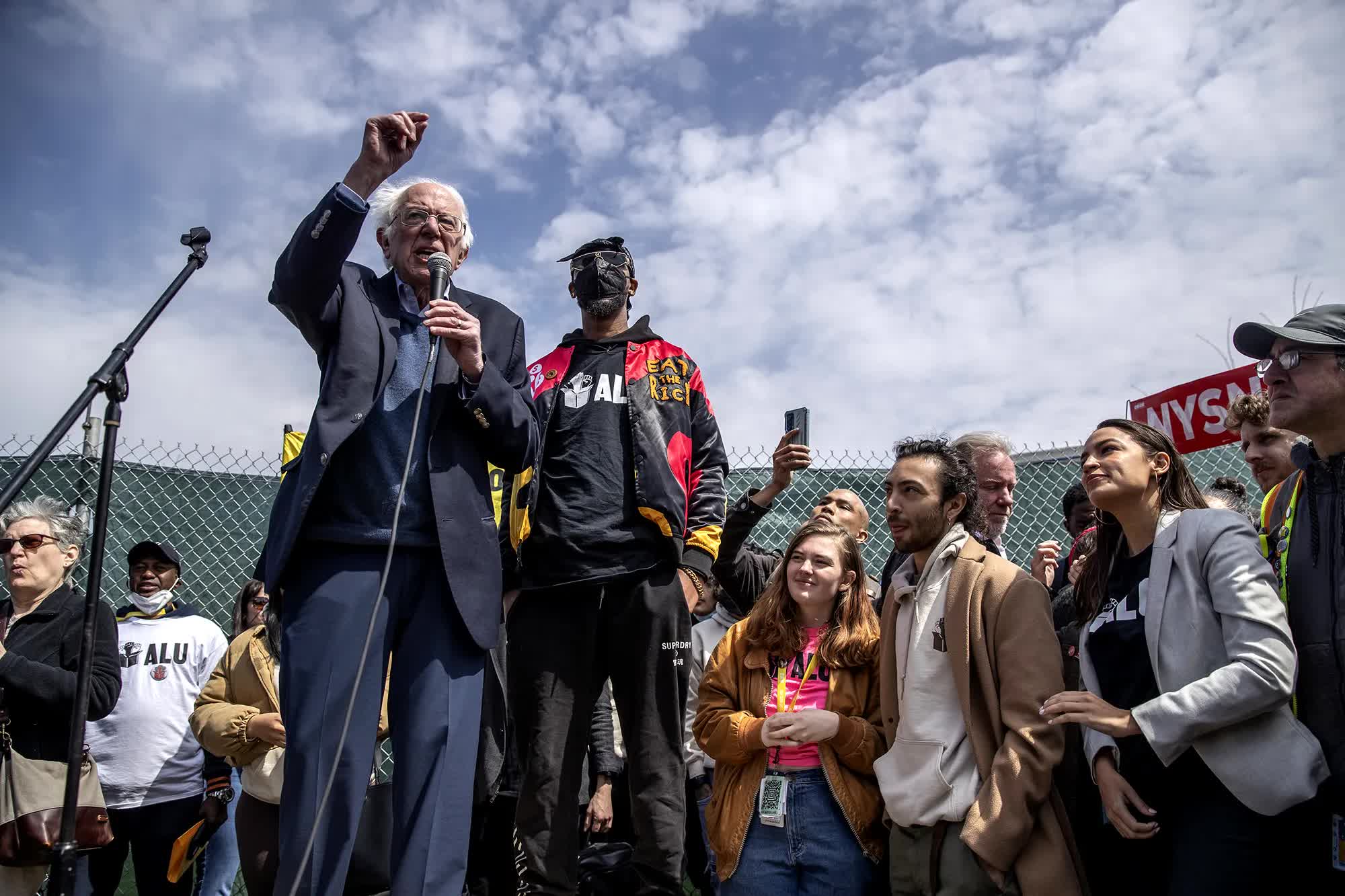05:36:24 pm 08/03/2023
Viewed: 12669
Bernie Sanders' Legacy: Shifting the Political Landscape Without Winning the Presidency
WASHINGTON, D.C. — Senator Bernie Sanders' presidential campaigns in 2016 and 2020 may not have resulted in a nomination, but they have left an indelible mark on American politics, shifting the national conversation and influencing policy at both the state and federal levels.
In 2016, Sanders, an independent senator from Vermont, challenged the Democratic establishment with a platform that championed progressive ideas such as universal healthcare, tuition-free college, and a $15 minimum wage. Though he lost the nomination to Hillary Clinton, his campaign ignited a grassroots movement that continued to resonate with voters.
Political scientist Robert Reich, a former Secretary of Labor, has often spoken about Sanders' influence on the Democratic Party, noting that his 2016 campaign "changed the conversation in Democratic politics and America."
Four years later, Sanders ran again, further solidifying his influence. His 2020 campaign continued to push progressive policies, with some of his ideas reflected in the platforms of other Democratic candidates.
Perhaps the most tangible impact of Sanders' campaigns has been the push for a higher minimum wage. The movement for a $15 minimum wage has gained significant traction, with several states and cities implementing or planning for a gradual increase.
Economist Paul Krugman has acknowledged the importance of this movement, stating that the push for a higher minimum wage "has real substance and will make a big difference to millions of workers."
The influence of Sanders' campaigns extends beyond his policy proposals. Politicians like Representative Alexandria Ocasio-Cortez, who identify with the progressive wing of the Democratic Party, have continued to advocate for many of the policies Sanders championed.
Political commentator Van Jones has praised Sanders for his ability to inspire a new generation of progressive leaders, saying, "He's not just a candidate. He's a cause."
As the nation reflects on the political landscape of the past decade, the influence of Bernie Sanders' presidential campaigns stands as a testament to the power of grassroots movements and the ability to effect change without securing the highest office in the land.
Sanders' legacy is not defined by electoral victories but by the way he has changed the political discourse. His campaigns have shown that supporting a candidate who represents your beliefs can still have a significant impact, even if they don't win.
WASHINGTON, D.C. — Senator Bernie Sanders' presidential campaigns in 2016 and 2020 may not have resulted in a nomination, but they have left an indelible mark on American politics, shifting the national conversation and influencing policy at both the state and federal levels.
In 2016, Sanders, an independent senator from Vermont, challenged the Democratic establishment with a platform that championed progressive ideas such as universal healthcare, tuition-free college, and a $15 minimum wage. Though he lost the nomination to Hillary Clinton, his campaign ignited a grassroots movement that continued to resonate with voters.
Political scientist Robert Reich, a former Secretary of Labor, has often spoken about Sanders' influence on the Democratic Party, noting that his 2016 campaign "changed the conversation in Democratic politics and America."
Four years later, Sanders ran again, further solidifying his influence. His 2020 campaign continued to push progressive policies, with some of his ideas reflected in the platforms of other Democratic candidates.
Perhaps the most tangible impact of Sanders' campaigns has been the push for a higher minimum wage. The movement for a $15 minimum wage has gained significant traction, with several states and cities implementing or planning for a gradual increase.
Economist Paul Krugman has acknowledged the importance of this movement, stating that the push for a higher minimum wage "has real substance and will make a big difference to millions of workers."
The influence of Sanders' campaigns extends beyond his policy proposals. Politicians like Representative Alexandria Ocasio-Cortez, who identify with the progressive wing of the Democratic Party, have continued to advocate for many of the policies Sanders championed.
Political commentator Van Jones has praised Sanders for his ability to inspire a new generation of progressive leaders, saying, "He's not just a candidate. He's a cause."
As the nation reflects on the political landscape of the past decade, the influence of Bernie Sanders' presidential campaigns stands as a testament to the power of grassroots movements and the ability to effect change without securing the highest office in the land.
Sanders' legacy is not defined by electoral victories but by the way he has changed the political discourse. His campaigns have shown that supporting a candidate who represents your beliefs can still have a significant impact, even if they don't win.
No video exists.





Comments